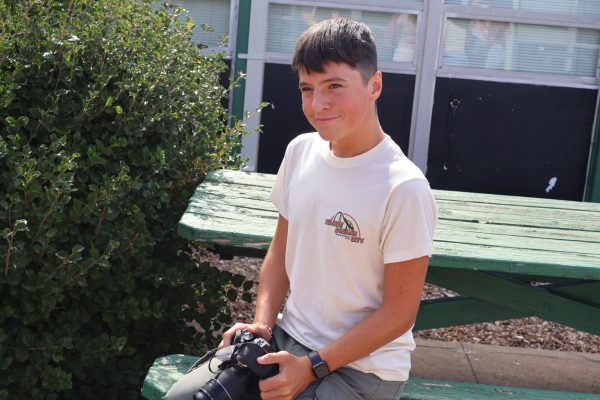Coping with death of loved one is experience everyone must face
April 4th, 2019, at 11:15 am, my grandma took her last and final breath. Little did I know when I told her that I loved her, it would be the last time.
My grandma was my best friend, I could talk to her about anything and she would listen. My grandma and I had a lot of memories that we made together. We would sing songs together and tell each other stories about our day every night when I came home from school. My grandma had lived with me for six years, she had struggled with lung diseases such as COPD and emphysema. She was on a walker and oxygen and needed supervision. My family and I had taken care of her, attempting to give her the best quality of life that we could.
One day, I came home from school and found that my grandma fell and broke her ankle. I was the one who found her and called for help. I knew that the end was coming close for her. She had a poor immune system and doctors had told us that if she broke a bone she would not make it through.
A week passed, and she was getting worse with multiple visits to the hospital and no good news was ever received. The doctors had come to the conclusion that she needed to be put on hospice, where she could be comfortable in her own home since there was nothing else they could do for her.
One night I went into her room before bed. I sat next to her while she was asleep. I looked at her and I told her that I loved her. She woke up and struggled to speak, but she managed to say “I love you; have a good day at school tomorrow.”
The next day while I was sitting in my classroom, the phone rang and my teacher announced that I was going home early. I knew instantly that she had passed.
As I walked into my grandma’s room, the room was cold and still. The silence was thick and the only sound I heard was the clock ticking, skipping three seconds at a time. There, my grandma was in bed. She was there, visible and within my reach. Yet, she was gone. I gave her one last hug before the coroners took her; she was cold and still, no heartbeat, nothing.
According to cdc.gov, there are an average 6,504 deaths per day. It is difficult to believe that when you say goodbye to a loved one that it could be the last time. Time is never guaranteed, especially when it comes to someone’s life.
Dealing with my grief was different from others. There are many stages someone may experience while trying to cope. According to washington.edu, the first stage of grief is denial. Many people may feel numb or confused which leads to shutting down. On the outside, it can seem that they choose to keep themselves busy. You may notice them forgetting or procrastinating more than their normal life.
The second stage is anger. On the inside, people may feel frustrated and rage on why they lost someone. Many may recognize them as acting more irritable or aggressive. This could even lead to an increased alcohol or drug use.
The third stage is depression. Inside, someone can feel hopeless, sad, and in despair. This causes reduced energy, reduced motivation, and lack of social interest.
Grief is something that has no time limit, grief can last a few weeks, months, years, or even a lifetime. But at some point, one decides to finally accept it. You will never forget, but you will accept.
Each and everyday we say “I will see you later,” but we may not. Each and everyday we take our lives for granted when it could be taken away in an instant. So cherish it, love each other, and live each moment to the fullest.

Senior Abby Dendish is excited to begin her second year as a part of the journalism staff. This year Dendish is participating as an editor and can't wait...






